Double Take is a 2009 essay film, directed by Johan Grimonprez and written by Tom McCarthy. The plot is set during the Cold War and combines both documentary and fictional elements. The protagonist is a fictionalised version of Alfred Hitchcock. The backdrop of the film charts the rise of the television in the domestic setting and with it, the ensuing commodification of fear during the cold war.
| Double Take | |
|---|---|
| Directed by | Johan Grimonprez |
| Produced by | Nicole Gerhards Emmy Oost Hanneke M. van der Tas Denis Vaslin |
| Written by | Johan Grimonprez Tom McCarthy |
| Music by | Christian Halten |
| Cinematography | Martin Testar |
| Edited by | Dieter Diependaele Tyler Hubby |
Production company | Zap-o-Matik |
Release date |
|
Running time | 80 minutes |
| Country | Belgium Germany Netherlands |
| Language | English |
Double Take is a Belgian-Dutch-German co-production and premiered in Europe at the 2009 Berlin Film Festival and in the U.S. at the 2010 Sundance film Festival.
Screenplay
Inspired by Jorge Luis Borges' short story 25th August, 1983, Double Take's narrative plot is based on a fictional encounter Alfred Hitchcock has with an older version of himself. Whilst on set of his 1962 film The Birds, Hitchcock calls a twelve-minute break in order to answer a phone call in one of the universal studio buildings. After a foreboding encounter with a security guard, Hitchcock finds his way into a room similar to the tearooms in both the Chasen's hotel in Los Angeles and the Claridge's hotel in London. Here, Hitchcock and his doppelgänger meet. The ensuing conversation between the two is characterized by personal paranoia and distrust where the younger Hitchcock is in deep fear of his older alter ego.
Intermittently returning to the room in which the menacing conversation between the two Hitchcocks proceeds, the narrative takes a deathward path. Hitchcock and his doppelgänger regard each other with a mixture of revulsion and confusion. Regarding the aphorism that "if you meet your double, you should kill him", both Hitchcocks knowing how the encounter must end."So, tell me, how would you like to die?" asks the older Hitchcock, sipping on a cup of coffee. All the while, Folgers coffee advertisements puncture the narration in the backdrop of the Cold War. By means of his double, Hitchcock the filmmaker realizes that he is going to die. Killed by the younger, television-making, version of himself.
- Ron Burrage as Hitchcock's Double. "For years, Ron impersonated Hitchcock in everything ranging from Robert Lepage's Le Confessional (1995) (itself a remake), to soap and shampoo commercials, to guest appearances in music videos for Oasis, to introducing Hitchcock Presents on Italian television, to starring in a Japanese documentary about the life of the Master..." However, Burrage shares much more with the real Alfred Hitchcock than his looks; from Hitchcock's pranks to his birthday (13 August). He is not only filling in for Hitchcock but literally taking over his role by introducing Tippi Hedren to the audience after the first screening of the newly restored print of The Birds in Locarno, that actually took place on 13 August.
- Mark Perry as Hitchcock's Voice
- Delfine Bafort as the Hitchcock's blonde (the double of Eva Marie Saint and Tippi Hedren)
In 2005, prior to making Double Take - which started as a casting, Grimonprez shot the ten-minute video installation Looking For Alfred. The video installation explored the director's search for the perfect Hitchcock double. Grimonprez held screen tests in New York, Los Angeles and London. He chose Mike Perry, a Hitchcock sound-alike and an impersonator of Tony Blair, while Ron Burrage, a professional Hitchcock double, as a result of this search, became a protagonist in Double Take. The project explored the legacy of Hitchcock's persona as well as it made references to his films through restaging his cameo appearances. In 2007, Film and Video Umbrella published a book version of Looking For Alfred with inclusions by authors: Patricia Allmer, Jorge Luis Borges, Chris Darke, Thomas Elsaesser, Tom McCarthy, Jeff Noon and Slavoj Zizek.
The themes of Double Take are paranoia, falsehoods, contradictions and the rise of the culture of fear played out through the beginning of the television era. Six major themes seem to surface:
- 1. Double Bottoms
- 2. The Commercial Break
- 3. Political Layaring
- 4. Reality versus Fiction
- 5. The Figure of the Double
- 6. Representation of Women
1. Double Bottoms and multilayered metaphors
The multilayered metaphors of Double Take explore not only the character of Alfred Hitchcock meeting his double, but also the era's society as a whole. Hitchcock is cast as a paranoid history professor shadowed by an elusive double against the backdrop of the Cold War, played out through the television tube; he "says all the wrong things at all the wrong times while politicians on both sides desperately clamor to say the right things, live on TV." The themes explored in Double Take are all rooted in the following comment by Ron Burrage - the Alfred Hitchcock lookalike: "People always do a double take when they see me." And as such the film’s exploration into paranoia is also a double take on the Cold War, a mirror of the fear mongering played over the TV tube.
2. The Commercial Break
The five Folgers commercials for instant coffee that play throughout Double Take are referring to the commercial break of the television format, described by Hitchcock as "the enemy of suspense" and "designed to keep you from getting too engrossed in the story". Moreover, the commercials represent the exploration of the theme that fear and murder lurks in the domestic setting, "where it always belonged". They also imply a yearning for successful 'falsehood'. The question of why the Folgers housewives wouldn't simply prepare real coffee refers to the film's question why our culture yearns for successful imitation—for falsehood. In this contradiction one act masquerades its opposite. The Folgers commercial is subverted in such a way that its message, "Drink Folgers," becomes coded as part of a murder plot.
3. Political Layering, The Cold War & The Birds as metaphor
Double Take presents the Soviet Union and the US as doubles in a series of power plays attempting to assure the other's demise. Besides that Double Take is also about how two man always do the talking: in the 'Kitchen Sink Debate' of 1959, the first televised summit live, Nikita Khrushchev outsmarted Richard Nixon, "whose best retort to the Soviet leader's critiques of U.S. capitalism is to point to the latest in TV sets". Double Take implies that the predominate purposes of the space race as well as the television were propaganda, "both individually and, to greatest effect, when acting together". The infamous 'Kitchen Sink Debate' mimics the conversation between Hitchcock versus Hitchcock, which mimics the man and woman debate in the kitchen during the Folgers commercials in turn.
The mirroring of Hitchcock versus Hitchcock (as Hitchcock frequently doubled himself as the storyteller in his films through his cameos), suggests a similar doubling of Rixard Nixon and the young John F. Kennedy during the first televised presidential debates, the same Kennedy who finds his match in Khrushchev during the Cuban Missile Crisis, and finally Khrushchev versus Leonid Brezhnev just as Brezhnev is plotting Khrushchev's downfall.
The paranoia in Hitchcock's work becomes an allegory for the kind of fear that became so normal during the Cold War. Echoes of and excerpts from Hitchcock's The Birds (1963) propose the film as an allegory for television - which has, according to Hitchcock, "brought murder back into the home-where it always belonged", and as the threat of missiles descending from the sky, suggesting a psychohistorical analogy between the fear of nuclear attack and Hitchcock's suspense.
4. Reality vs Fiction
Double Take plays with different genres against one another and with how fiction comes to stand for reality or the other way around. It shows a recent history against a fiction even while it presents that history itself as an ongoing story of claustrophobic suspense. In the end not only politicians but Hollywood as well are "invested in perpetuating a culture of fear". Double Take also refers to the doubling of cinema versus television through an intimate fiction story versus a bigger political narrative as well as through the rivalry between cinema and its televisual double. This mirrors the plot that sets up Hitchcock the filmmaker versus Hitchcock the television-maker at a time television was taking over cinema.
But Double Take adds a contemporary twist: "You think all the way through that cinema is going to be killed by television or television is going to kill cinema or America is going to kill Russia or Russia is going to kill America. But at the end, it’s the third one, the new one, the younger one, the YouTube version, that comes along and kills them all."
5. Cultural References: the Figure of the Double in Literature
Seeing one's own doppelganger is usually a bad omen; it might even be a "premonition of death". The first narrated line during the 'Borgesian' confrontation between Hitchcock young and old in Double Take launches the plotline and comes with a warning: "If you meet your double, you should kill him." This provocative statement one should kill one's identical suggest that doing so means nothing but self-protection or even self-preservation. For it is believed that the double has no reflection in the mirror, it can be seen as a mirror itself: "because he performs the protagonist's actions in advance, he is the mirror that eventually takes over." Double Take is based on a similar plot. Hitchcock himself gets eliminated in the first round of a Hitchcock lookalike competition. But all the participants of the competition áre Hitchcock, so "he's losing to himself". Hitchcock studies are "proliferated to such a degree that there are many different Hitchcocks". As Thomas Elsaesser notes that we now have a Hitchcock defined as Nietzschean and as Wittgeinsteinian, as Deleuzian and as Derridean, as Schopenhauerian and as many more contradictory things. In this way Hitchcock returns "as so many doubles of his own improbable self".
Jose Luis Borges' initial short story August 25, 1983 is based on Fyodor Dostoyevsky's The Double as well as on Tom McCarthy's story Negative Reel in the book Looking For Alfred. Authors like Adelbert von Chamisso, Hans Christian Andersen, Edgar Allan Poe and many more were inspired by the idea of the double as well. The narration of Double Take is in fact already a double itself, for it is inspired by Borges' novella The Other (1972). Borges rewrote his novella into Agustus 25, 1983 (1983), and it was the latter one that was reworked for Double Take.
Watch movie Double Take 2009 Film online on Amazon
Watch movie Double Take 2009 Film online
Watch The Movie On PrimeMera Pehla Pehla Pyaar Full HD Movie Download
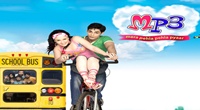
Kala Dhanda Goray Log Full HD Movie Download
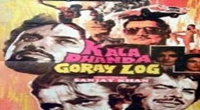
A Wednesday Full HD Movie Download
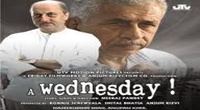
Sherni Full HD Movie Download
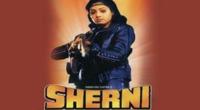
Kites Full HD Movie Download

Isi Ka Naam Zindagi Full HD Movie Download
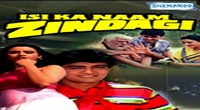
Oye Lucky! Lucky Oye! Full HD Movie Download
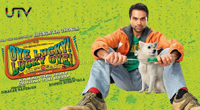
Free Love Full HD Movie Download
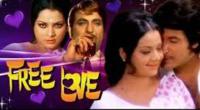
Meri Awaaz Suno Full HD Movie Download
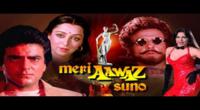
Aamir Full HD Movie Download
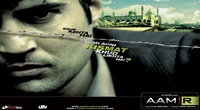
Bazaar (1982) Full HD Movie Download
.jpg)
Charminar Boys Full HD Movie Download
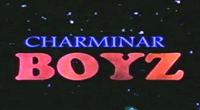
College Student Full HD Movie Download

Mata Velankanni Full HD Movie Download
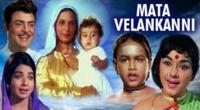
Kalshekhar Aahet Ka Full HD Movie Download
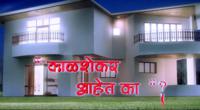
Music And Lyrics Full HD Movie Download
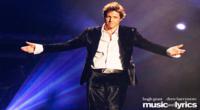
Face To Face Full HD Movie Download
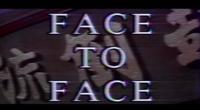
Ooyala Full HD Movie Download
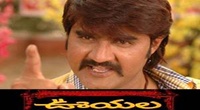
Japanil Kalyanaraman Full HD Movie Download
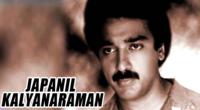
Mannan Full HD Movie Download
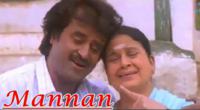
Jane Anjane Full HD Movie Download
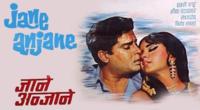
Download latest Movie from bollywood
- 1> baaghi 3
- 2> THE SKY IS PINK MOVIE FULL STORY AND REVIEW
- 3> Luka Chuppi
- 4> TO ALL THE BOYS I’VE LOVED BEFORE
- 5> Kabir Singh
- 6> Street Dancer 3D
- 7> Simmba
- 8> Gone Girl
- 9> The Girl Who Lived
- 10> Ludo
- 11> DILWALE DULHANIA LE JAYENGE
- 12> GUILTY
- 13> The Godfather
- 14> Adventures of Rusty
- 15> Sooryavanshi
- 16> Satyameva Jayate 2
- 17> Thappad
- 18> Bhool Bhulaiyaa 2
- 19> KGFChapter 2
- 20> Mardaani 2
- 21> Pinjar
- 22> Shivaji maharaj
- 23> Ek Villian 2
- 24> Hungama 2
- 25> Divergent
- 26> Mumbai Saga
- 27> The Internship
- 28> HIT (telugu)
- 29> Panga
- 30> The perfect date
- 31> 16 December
- 32> Gopala Gopala (Telugu)
- 33> Brahmastra
- 34> Gangubai Kathiawadi
- 35> Manmadhudu
- 36> Nenu local
- 37> Mahanati
- 38> Shatamanam bavathi
- 39> Lagaan
- 40> After
- 41> MOM
- 42> Shamshera
- 43> Raguvaran BTech
- 44> Khakee
- 45> The villain
- 46> OM
- 47> Mr. perfect
- 48> Bueatifull mind
- 49> Hichki
- 50> Gabbar Singh
- 51> Jogi
- 52> Before Sunrise
- 53> Before Sunset
- 54> Before Midnight
- 55> The Big Bull
- 56> Top Gun: Maverick
- 57> The Purge
- 58> The Sky is Pink
- 59> Laxmmi Bomb
- 60> Sadak 2
- 61> Sufna
- 62> Prithviraj
- 63> PK
- 64> Coolie No 1(2020)
- 65> Black Widow
- 66> Dear Zindagi
- 67> Dil Bechara
- 68> PHIR HERA PHERI
- 69> WAR
- 70> Dostana
- 71> RRR: Roudram Ranam Rudhiram
- 72> Maidan
- 73> Dabbang 3
- 74> Chhalaang
- 75> life as we know it
- 76> SherShaah
- 77> Sandeep Aur Pinky Faraar
- 78> Event Horizon
- 79> 83
- 80> Radhe: Your Most Wanted Bhai
- 81> Gunjan Saxena: The Kargil Girl
- 82> Mr India
- 83> Vivah
- 84> Anokha Bandhan
- 85> Ghost
- 86> Bhoot: Part One - The Haunted Ship
- 87> Haseen Dilruba
- 88> Laal Singh Chaddha
- 89> Qismat
- 90> Rajput
- 91> Drive
- 92> Dil Chahta Hai
- 93> Dil Ki Baazi
- 94> Dil Ka Rishta
- 95> Teesri Manzil
- 96> Dil
- 97> Love Aaj Kal
- 98> Khaali Peeli
- 99> Bunty Aur Babli 2
- 100> Atrangi Re
- 101> Gulabo Sitabo
- 102> Jodi
- 103> Suraj Pe Mangal Bhari
- 104> Deewana
- 105> Attack
- 106> Sardar Udham Singh
- 107> Toofan
- 108> THE LOVEBIRDS
- 109> Jersey
- 110> Ginny Weds Sunny
- 111> Thalaivi
- 112> Shiddat
- 113> Angels vs Zombies
- 114> Koi Mil Gya
- 115> Thank God
- 116> Bhuj: The Pride of India
- 117> Hum Aapke Hain Kaun
- 118> The Platform
- 119> Bird Box
- 120> Roohi Afzana
- 121> Torbaaz
- 122> Nikamma
- 123> World War Z
- 124> Extraction
- 125> Train to Busan
- 126> Life of Pi
- 127> SHAADI MEIN JROOR AANA
- 128> Himmat Aur Mehnat
- 129> To All The Boys: P.S. I Still Love You
- 130> Mimi
- 131> Good Newwz
- 132> Shubh Mangal Zyada Saavdhan
- 133> Raabta
- 134> Harry Potter and the Philosopher's Stone
- 135> Harry Potter and the Chamber of Secrets
- 136> Chhapaak
- 137> War of the Worlds
- 138> Harry Potter and the Prisoner of Azkaban
- 139> Harry Potter and the Goblet of Fire
- 140> MURDER MYSTERY
- 141> Shakuntala Devi
- 142> Bachchan Pandey
- 143> Jayeshbhai Jordar
- 144> Sheer Qorma
- 145> Saina
- 146> 'O' Pushpa I hate tears
- 147> Kedarnath
- 148> MS Dhoni The Untold Story
- 149> Chhichhore
- 150> Badhaai Ho
- 151> Unstoppable
- 152> Oz the Great And Powerful
- 153> The Girl on the Train
- 154> Haathi Mere Saathi 2020
- 155> The Conjuring: The Devil Made Me Do It
- 156> Gandhi Se Pehle Gandhi
- 157> The Song of Scorpions
- 158> Srimanthudu
- 159> Hello Guru Prema Kosame
- 160> Beauty and The Beast
- 161> Black Panther
- 162> Charlie and the Chocolate Factory
- 163> Bole Chudiyan
- 164> Fidaa
- 165> Duvvada Jagannadham
- 166> Bruce Lee: The Fighter
- 167> Hyper
- 168> Yaara
- 169> Red (2020)
- 170> Shivam
- 171> That Is Mahalakshmi
- 172> Nishabdham
- 173> Aashram 2020 web series
- 174> Laxmii
- 175> Mismatched
- 176> STUDENT OF THE YEAR 2
- 177> NAIL POLISH
- 178> Ramprasad Ki Tehrvi
- 179> KAAGAZ
- 180> 12 o Clock
- 181> The Power
- 182> bolo hau
- 183> Tribhanga
- 184> JAMUN
- 185> Madam Chief Minister
- 186> Maasaab
- 187> Aadhaar
- 188> Tanhaji
- 189> Bhaagi 3
- 190> Bhootnath
- 191> MALANG
- 192> Jai Mummy Di
- 193> Haathi Mere Saathi 2021
- 194> Shakeela
- 195> Unpaused
- 196> Annayya
- 197> Vamsoddharakudu
- 198> Mrugaraju
- 199> Narasimha Naidu
- 200> Sankranti
- 201> Manasu Maata Vinadhu
- 202> Anjaane
- 203> Apaharan
- 204> Bachke Rehna Re Baba
- 205> Bewafaa
- 206> Roohi
- 207> Radhe
- 208> Zindagi Khoobsoorat Hai
- 209> Yeh Mohabbat Hai
- 210> Yeh Kya Ho Raha Hai?
- 211> The Tomorrow War
- 212> DehradunDiary
- 213> Meri Shaadi Karaoo
- 214> Matruu Ki Bijlee Ka Mandola
- 215> No One Killed Jesica
- 216> Aag Ka Goola
- 217> Eight Million Dollars
- 218> Three Hundred
- 219> Cats and Dog
- 220> Decoy
- 221> Gold Rush
- 222> You Have Got Mail
- 223> Final Destination three
- 224> Tofan
- 225> Jungle
Request for Download movie Double Take 2009 Film
- Bollywood movies
- Latest Bollywood movies
- Download all bengali movies
- Download all bhojpuri movies
- Download all english movies
- Download all gujarati movies
- Download all hindi movies
- Download all kannada movies
- Download all malayalam movies
- Download all marathi movies
- Download all oriya movies
- Download all punjabi movies
- Download all tamil movies
- Download all telugu movies
- Bollywood action movies
- Bollywood adventure movies
- Bollywood animation movies
- Bollywood classical movies
- Bollywood comedy movies
- Bollywood crime movies
- Bollywood devotional movies
- Bollywood documentary movies
- Bollywood drama movies
- Bollywood family movies
- Bollywood fantasy movies
- Bollywood historical movies
- Bollywood history movies
- Bollywood horror movies
- Bollywood musical movies
- Bollywood mystery movies
- Bollywood mythological movies
- Bollywood patriotic movies
- Bollywood romance movies
- Bollywood romantic movies
- Bollywood sci-fi movies
- Bollywood social movies
- Bollywood spiritual movies
- Bollywood sports movies
- Bollywood suspense movies
- Bollywood thriller movies
- Bollywood war movies
- Hot actress list
- Hot gujarati actress list
- Hot tamil actress list
- Hot bhojpuri actress list
- Hot assam actress list
- Hot bihari actress list
- Hot jammu and kashmir actress list
- Hot gujarati actress list
- Hot haryana actress list
- Hot konkani actress list
- Hot marathi actress list
- Hot odia actress list
- Hot punjabi actress list
- Hot rajasthani actress list
- Hot kannada actress list
- Hot malayalam actress list
- Hot telugu actress list
- Hot tulu actress list
- Hot Actress list from Indian city
- Hot actress list from ahmedabad
- Hot actress list from alappuzha
- Hot actress list from bangalore
- Hot actress list from bangalore
- Hot actress list from bhopal
- Hot actress list from chandigarh
- Hot actress list from chennai
- Hot actress list from guwahati
- Hot actress list from hyderabad, india
- Hot actress list from indore
- Hot actress list from jaipur
- Hot actress list from kannur
- Hot actress list from kochi
- Hot actress list from kolkata
- Hot actress list from kollam
- Hot actress list from kottayam
- Hot actress list from kozhikode
- Hot actress list from lucknow
- Hot actress list from madurai
- Hot actress list from mangalore
- Hot actress list from mumbai
- Hot actress list from mysore
- Hot actress list from new delhi
- Hot actress list from patna
- Hot actress list from pune
- Hot actress list from thiruvananthapuram
- Hot actress list from thrissur
- Hot actress list from tiruchirappalli
- Hot actress list from vijayawada
- Hot actress list from visakhapatnam
- All Bollywood Movies
- Bollywood Celeb
- >Art Director
- >Audiography
- >Background Music
- >Banner
- >Choreographer
- >Cinematographer
- >Costume Designer
- >Dialogue Writer
- >Director
- >Distributor
- >Editor
- >Executive Producer
- >Hair Stylist
- >Lyricist
- >Music Director
- >Photographer
- >Playback Singers
- >Presenter
- >Producer
- >Production Company
- >Production Designer
- >Screenplay
- >Singer
- >Sound
- >Actor
- >Story Writer
- >Studio
- >Video Director
- >Miscellaneous
- >Publicity (pro)
- >Web Creator
- >Production Labs
- >Publicity Design
- >Publicity Stills
- >Writer
- >Miscellaneous Artists
- >Visual Effects
- >Reporter
- >Music Company
- >Shooting Studios
- >Picturised On
- >Line Producer
- >Co Producer
- >Asst Director
- >Casting Director
- >Cinematography
- >Choreography
- >Dialouge
- >Editing
- >Lyrics
- >Music
- >Story
- >Playback Singer Female
- >Playback Singer Male
- >Actor In A Comic Role (male/female)
- >Child Artiste
- >Ensemble Cast
- >Actor Popular Choice (male)
- >Actor Popular Choice (female)
- >Sa Re Ga Ma Pa Song Of The Year
- >Actor In Supporting Role
- >Actress In Supporting Role
- >Actor In Leading Role
- >Art Direction
- >Actress In Leading Role
- >Sound Recording
- >Costume Design
- >Special Effects
- >Action
- >Actor In A Negative Role
- >Lifetime Achievement Award
- >Cinematic Exellence (director)
- >Cinematic Exellence (male)
- >Cinematic Exellence (female)
- >International Male Icon
- >International Female Icon
- >Actor In A Supporting Role (male)
- >Actor In A Supporting Role (female)
- >Actor In A Comic Role
- >Playback Singer (male)
- >Playback Singer (female)
- >Most Promising Debut (female)
- >Most Promising Debut (male)
- >Most Promising Director
- >Sound Design
- >Lifetime Jodi
- >Marketed Film
- >Jury Award For Best Actor
- >Jury Award For Best Actress
- >Jury Award For Best Film
- >Jury Award For Best Director
- >Playback Singer(male)
- >Lifetime Acheivement Award (male)
- >Excellence Award
- >Jodi Award
- >Performer Of The Year
- >Presented By
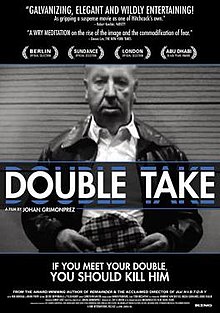 Story of movie Double Take 2009 Film :
Story of movie Double Take 2009 Film : 